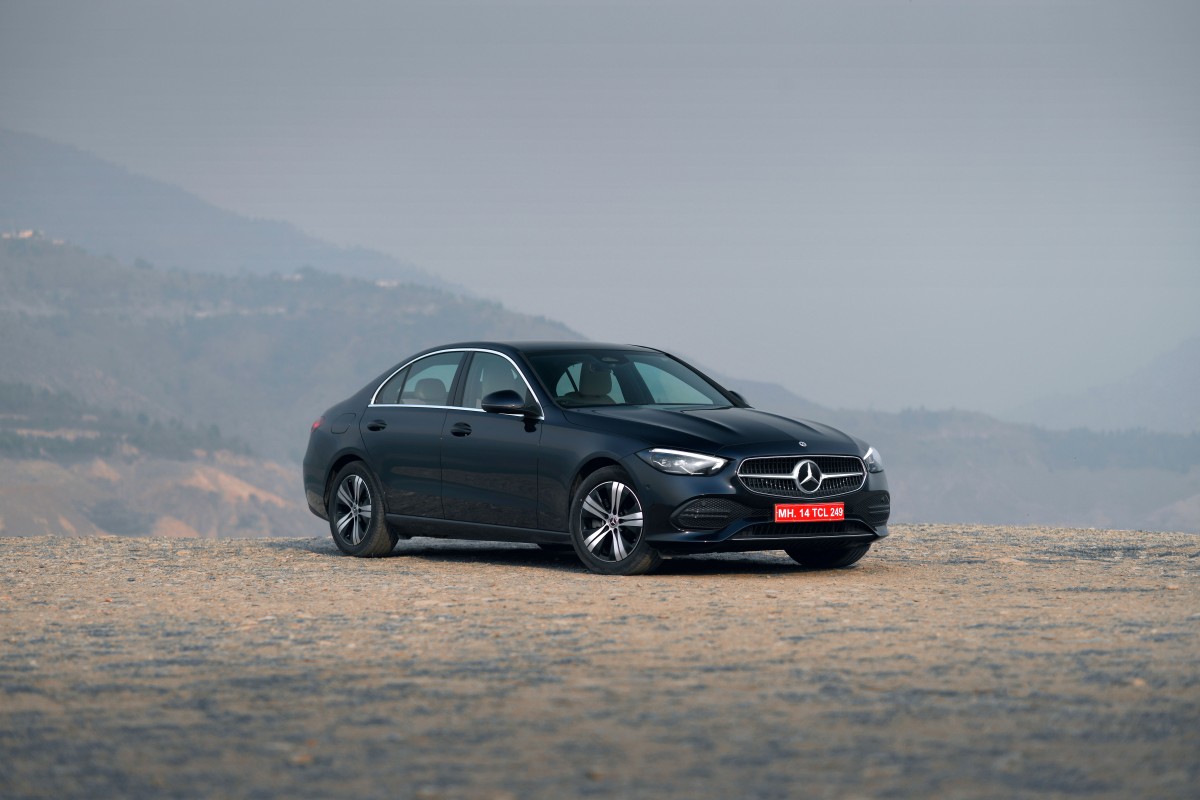

Mercedes-Benz India‘s long wheelbase (LWB) E-Class launched in 2017 was an instant success. Its added rear-seat space and comfort gave it a huge advantage over rivals. However, despite that car’s success, the LWB versions were not offered on the smaller C-Class. Now Mercedes-Benz India has now elaborated on why that was the case.
Launched back in May 2022, the new Mercedes-Benz C-Class has been a successful product. It came in close behind the E-Class as Mercedes India’s second-best-selling model for the financial year 2023. The C class put on a solid 2,405 units of sales for the given period.
We are aware that the Mercedes-Benz S-Class flagship has always been sold in its LWB guise in India. However, in the Chinese market, long-wheelbase versions of lesser sedans, and even some SUVs, have also done quite well for years. For example, the LWB C-Class has been sold in China for several generations now. But the story is different for India. Despite LWB’s popularity in the Indian market. Mercedes mentioned that the standard wheelbase (SWB) C-Class meets buyers’ needs in its segment in India.
To further speak on the topic, Mercedes-Benz India mentioned that the E-Class and S-Class, both LWB models, have buyers that are primarily chauffeur driven, But the case is different for the C-Class. As most of its owners prefer to drive themselves.
Another key point is that buyers who do prioritise the rear seat experience happen to upgrade from the C to E-Class. Spec for spec, the price difference between the two sedans stands at INR 15 lakh. This difference is not significantly big for the buyers and hence most buyers are comfortable to make. Thus, the additional cost of bringing in the LWB C-Class would narrow this gap down, effectively killing its chances altogether.
Also Read: 6th-gen Mercedes-Benz E-Class debuts with a dashboard full of screens